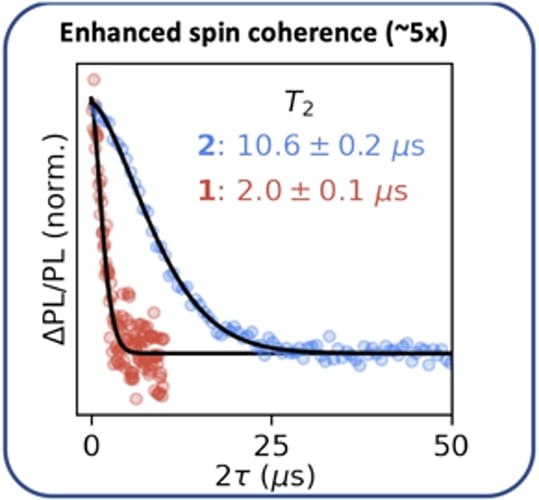Optically-addressable molecular qubits are a new frontier in the study of materials-based quantum bits. They provide a promising scalable platform for quantum technology, and have exceptional scalability tunability via chemical synthetic control and functionalization of the qubit.
Host matrix engineering for enhanced molecular qubit coherence

